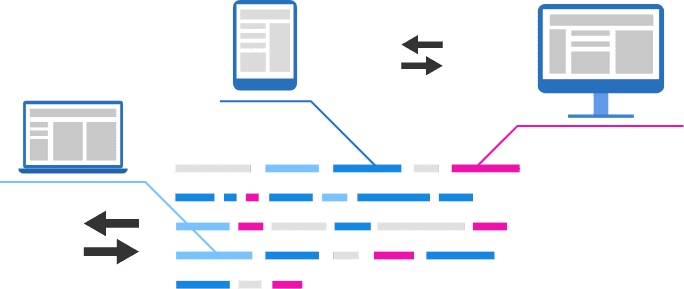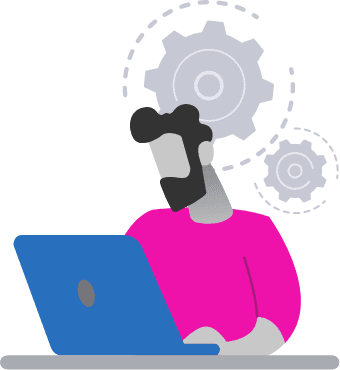Why you should be happy to devote plenty of time to your software development project.
If you’re embarking upon a software development journey with a reputable development company it’s very likely that, at some point, they will ask you who is going to fulfil the role of ‘Product Owner’. Is this your first experience with developing an app? Are you wondering what this means and why you need to be so involved in the scoping and development process? Isn’t this what you’re paying your developers to do?
Read on and we’ll explain why you should be delighted and indeed excited to dedicate as much time as you can to your project during the scoping and development stages.
The term ‘Product Owner’ was devised by the Agile Alliance and underpins a number of crucial functions within the ‘scrum’ development framework. You don’t need to worry about the esoteric terminology, just know that ‘scrum’ describes a specific set of processes within the broader agile development approach.
Fundamentally the job of the product owner is to manage the development backlog or development ‘tickets’ so that what is developed matches what is needed for the successful launch of the app. Don’t worry if you don’t have any previous experience with this, your scoping and development teams should be with you every step of the way to guide and coach you on what’s needed and how best to communicate the required information.

You should never be thrown in the deep end by your development company and it’s well worth talking to them early about how they manage and work with inexperienced Product Owners.
The Product Owner role was created to provide scoping and development teams with absolute clarity over what they are expected to scope and build, with a single point of contact able and empowered to make final decisions. This removes the confusion caused by too many people giving direction or, possibly worse, no one giving any direction at all.
Typically, neither of these scenarios leads to a successful outcome.
The 4 key responsibilities of the Product Owner as described by the Agile Alliance are;
- Clearly identify and describe product backlog items in order to build a shared understanding of the problem and solution with the product development team
- Make decisions regarding the priority of product backlog items in order to deliver maximum outcome with minimum output
- Determine whether a product backlog item was satisfactorily delivered
- Ensure transparency into the upcoming work of the product development team.
 Make sure you unpack each of these 4 key responsibilities with your software developers so you have a clear understanding of what this means for you and the expectations the team will have of you.
Make sure you unpack each of these 4 key responsibilities with your software developers so you have a clear understanding of what this means for you and the expectations the team will have of you.
Now, let’s be realistic here, we all live busy lives and, despite the very best of intentions, you may simply not have time to be the sole Product Owner for your app build. Attending all the required meetings during scoping and development may be impossible. Your app idea may also be complex and involve intricate and unique business logic or require specific subject matter expertise. In either or both of these scenarios it is entirely acceptable and in fact appropriate to have more than one Product Owner.
If this applies to your app build, it’s vitally important that you follow these 3 basic rules;
- Have clearly defined areas of responsibility
- Nominate one Product Owner for each identified area
- Ensure each Product Owner is empowered to make the final decision in their area
Being a Product Owner is a role that must be taken seriously. Your scoping and development teams should do all they can to accommodate you and work around your other professional commitments but there will inevitably be times when you can’t make a meeting. When this happens It’s important that you establish a delegate or stand in so that the project is not held up. Remember, when you appoint a delegate you should also empower them to make decisions, or it will cause delays.
When we have the Product Owner discussion with our clients one of the most common fears they express is that if things go wrong all fingers will be pointed at them as the ultimate decision maker. We get this, no one wants to be a scapegoat. Good development companies know very well that every app build has challenges that no one could possibly have foreseen. Product Owners are not expected to know all the possible technical issues that might arise and be responsible for mitigating them in advance. It’s the developers job to explain the implications of all the options they may be proposing so that the Product Owner can make fully informed decisions.
If things don’t go quite according to plan, that’s ok! A strong and close relationship between Product Owner and scoping or development teams means you should be able to resolve any issues together and still achieve a great outcome.
After all, a great outcome for you is what we as developers are always striving for.
So don’t be afraid to embrace the role of Product Owner. Take the time to understand it, give it the attention it deserves and welcome it as the key factor it is when it comes to the success of your app.
Good luck!
About the Author
Our Head of Growth Blair Williams believes in sharing his knowledge to make the software development journey easier for others. Located in our Brisbane, Australia office, Blair has worked with many clients not only in Australia but across the world.